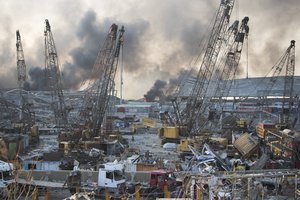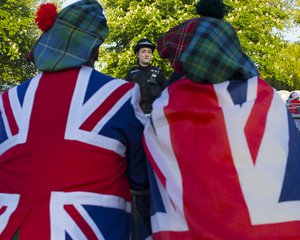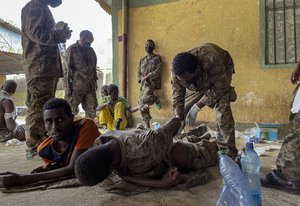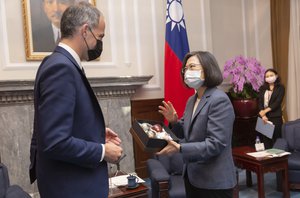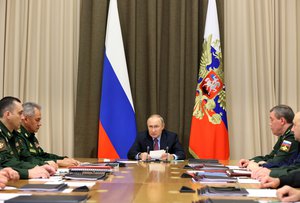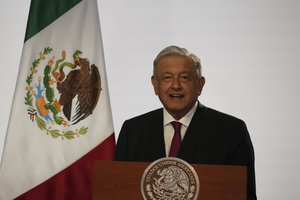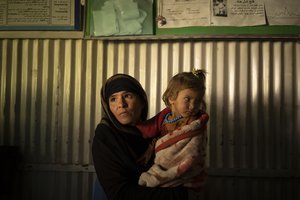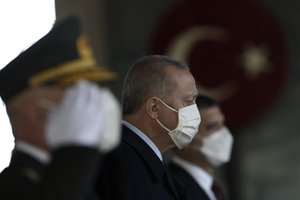- published: 07 Aug 2012
- views: 30367330
-
remove the playlistOlympic Games
- remove the playlistOlympic Games
Please tell us which country and city you'd like to see the weather in.
- published: 25 Aug 2021
- views: 13063
- published: 31 Jul 2021
- views: 341163
- published: 23 Aug 2021
- views: 863624
- published: 27 Apr 2020
- views: 2238907
- published: 13 Apr 2017
- views: 53096666
- published: 01 Aug 2021
- views: 1112503
- published: 02 Aug 2021
- views: 471424
- published: 25 Jun 2021
- views: 689334
- published: 28 Dec 2018
- views: 209811932

India at the Olympics
India first participated at the Olympic Games in 1900, with a lone athlete (Norman Pritchard) winning two medals- both silver- in athletics. The nation first sent a team to the Summer Olympic Games in 1920, and has participated in every Summer Games since then. India has also competed at several Winter Olympic Games beginning in 1964.
Overview
Indian athletes have won a total of 26 medals, all at the Summer Games. For a period of time, India national field hockey team was dominant in Olympic competition, winning eleven medals in twelve Olympics between 1928 and 1980. The run included 8 gold medals total and six successive gold medals from 1928–1956.
Early History
India sent its first athlete to the Olympics for the 1900 games, but an Indian national team did not compete at the Olympics until the 1920 Games. Ahead of the 1920 Olympics, Sir Dorab Tata and Governor of Bombay George Lloyd helped India secure representation at the International Olympic Council that allowed it to participate in the Olympic Games. India then sent a national team to the 1920 summer Olympic Games, comprising four athletes, two wrestlers, and managers Bhoot and Fyzee.

Olympic Games
The modern Olympic Games or Olympics (French: Jeux olympiques) are the leading international sporting event featuring summer and winter sports competitions in which thousands of athletes from around the world participate in a variety of competitions. The Olympic Games are considered to be the world's foremost sports competition with more than 200 nations participating. The Olympic Games are held every four years, with the Summer and Winter Games alternating by occurring every four years but two years apart.
Their creation was inspired by the ancient Olympic Games, which were held in Olympia, Greece, from the 8th century BC to the 4th century AD. Baron Pierre de Coubertin founded the International Olympic Committee (IOC) in 1894. The IOC is the governing body of the Olympic Movement, with the Olympic Charter defining its structure and authority.
The evolution of the Olympic Movement during the 20th and 21st centuries has resulted in several changes to the Olympic Games. Some of these adjustments include the creation of the Winter Olympic Games for ice and winter sports, the Paralympic Games for athletes with a disability, and the Youth Olympic Games for teenage athletes. The IOC has had to adapt to a variety of economic, political, and technological advancements. As a result, the Olympics has shifted away from pure amateurism, as envisioned by Coubertin, to allowing participation of professional athletes. The growing importance of mass media created the issue of corporate sponsorship and commercialization of the Games. World wars led to the cancellation of the 1916, 1940, and 1944 Games. Large boycotts during the Cold War limited participation in the 1980 and 1984 Games.

1908 Summer Olympics
The 1908 Summer Olympics, officially the Games of the IV Olympiad, were an international multi-sport event which was held in 1908 in London, England, United Kingdom. These games were originally scheduled to be held in Rome, but were re-located on financial grounds following a disastrous eruption of Mt Vesuvius in 1906. They were the fourth chronological modern Olympic Games in keeping with the now-accepted four-year cycle as opposed to the proposed Intercalated Games alternate four-year cycle. The IOC president for these Games was Baron Pierre de Coubertin. Lasting a total of 187 days, or 6 months and 4 days, these games were the longest in modern Olympics history.
Background
The selection process for the 1908 Summer Olympics consisted of four bids, and saw Rome selected ahead of London, Berlin and Milan. The selection was made at the 6th IOC Session in London in 1904.
Italian authorities were preparing to hold the games when Mount Vesuvius erupted on 7 April 1906, devastating the city of Naples. Funds were diverted to the reconstruction of Naples, so a new venue was required. London was selected for the first time to hold the Games which were held at White City alongside the Franco-British Exhibition, at the time the more noteworthy event.
1956 Olympics
1956 Olympics refers to both:
India (Vega album)
India is the first studio album by Spanish singer Vega, released on November 7, 2003 on Vale Music Spain.
History
This album represents her success after having sold more than 200.000 copies of her first single "Quiero Ser Tú" (Spanish for "I Want to Be You"), which was a task to be accomplished before being entitled to a recording contract. The album itself sold more than 110.000 copies in Spain alone.
The country, India, has always been an inspiration to Vega, and that is why she decided to name her album after it. All but two songs on the album, "That's Life" (Frank Sinatra cover) and "Believe" (K's Choice cover), were written by Vega. The eighth track, "Olor A Azahar", is dedicated to the city she was born in.
The first single from India was "Grita!", which became the best-selling single of 2003 in Spain. After the success of the first single, "La Verdad (ft. Elena Gadel)" and "Directo Al Sol" followed. Elena Gadel, a member of the girl-group Lunae, whom Vega had met during the time they were part of Operación Triunfo, also helped with the background vocals for "Grita!".
India (battle honour)
India was a battle honour awarded to the following regiments of the British Army for their service during the conquest of British India between 1787 and 1826:
References
Norman, C.B.: Battle Honours Of The British Army, From Tangier, 1662, To The Commencement Of The Reign Of King Edward VII. John Murray 1911.

Indian subcontinent
The Indian subcontinent or the subcontinent is a southern region of Asia, mostly situated on the Indian Plate and projecting southwards into the Indian Ocean from the Himalayas. Definitions of the extent of the Indian subcontinent differ but it usually includes the core lands of India, Pakistan, and Bangladesh;Nepal, Bhutan, and Sri Lanka, and the Maldives are often included as well. The region is also called by a number of other names including South Asia, a name that is increasingly popular.
Nomenclature
The region has been variously labelled as "India" (in its pre-modern sense), the Indian subcontinent (a term in particularly common use in the British Empire and its successors) and South Asia. Though the terms "Indian subcontinent" and "South Asia" are sometimes used interchangeably, some academics hold that the term "South Asia" is the more common usage in Europe and North America. According to historians Sugata Bose and Ayesha Jalal, the Indian subcontinent has come to be known as South Asia "in more recent and neutral parlance."Indologist Ronald B. Inden argues that the usage of the term "South Asia" is becoming more widespread since it clearly distinguishes the region from East Asia.
Radio Stations - New Delhi
SEARCH FOR RADIOS
India
ALBUMS
- La Historia... Mis Exitos released: 2007
- Soy Diferente released: 2006
- Latin Songbird: Mi Alma y Corazón released: 2002
- Sola released: 1999
- Sobre el fuego released: 1997
- Dicen que soy released: 1994
- Llegó la India Via Eddie Palmieri released: 1992
- Breaking Night released: 1990
- Lo Mejor De India released:
India
ALBUMS
- Unica released: 2010
- La Historia... Mis Exitos released: 2007
- Soy Diferente released: 2006
- Salsa divas released: 2004
- Latin Songbird: Mi Alma y Corazón released: 2002
- Sola released: 1999
- Sobre el fuego released: 1997
- Jazzin' released: 1996
- Dicen que soy released: 1994
- Llegó la India Via Eddie Palmieri released: 1992
- Breaking Night released: 1990
- Lo Mejor De India released:
-

Beam Final - Women's Artistic Gymnastics | London 2012 Replays
Full replay of the Artistic Women's Beam Final from the North Greenwich Arena during the London 2012 Olympic Games. Subscribe to the Olympics here & hit the bell! 🔔 http://oly.ch/Subscribe Artistic gymnastics was introduced at the very first Olympic Games in 1896 in Athens, and has been present at every edition of the Games since then. At the beginning, it comprised disciplines that are difficult to qualify as "artistic", such as climbing and acrobatics. The foundations of the Olympic gymnastics programme were laid at the 1924 Games in Paris, when the men's apparatus individual and team competitions appeared. In 1928, women were included in the Amsterdam Games. It was not until 1952 that the women's programme was developed, with seven events, and then stabilised at six events as from t...
published: 07 Aug 2012 -

🏊♀️ 🏊🏻♂️ The best swimming finals at Tokyo2020 | Top Moments
Caeleb Dressel, Ariarne Titmus, Adam Peaty, Emma McKeon - they all left their marks at the 2020 Olympic Games! Here are the best swimming finals at #Tokyo2020 - enjoy watching! _____________________________________________________ 👉 News from the Olympic world: https://oly.ch/Home 🔔 Subscribe & hit the bell: https://oly.ch/Subscribe 📺 Exclusive documentaries: https://oly.ch/Channel
published: 25 Aug 2021 -

WOMEN'S 100M FINAL | Athletics - Highlights | Olympic Games - Tokyo 2020
Subscribe to the #HomeOfTheOlympics in Europe to stream every unmissable moment from the Tokyo 2020 Olympics eurosport.com For news, results, schedules and all of the latest coverage from Tokyo, visit https://www.eurosport.com Follow us on YouTube: https://www.youtube.com/eurosport Facebook: https://www.facebook.com/Eurosport Instagram: https://www.instagram.com/eurosport Twitter: https://www.twitter.com/eurosport
published: 31 Jul 2021 -

Kipchoge 🇰🇪 wins marathon gold again 🥇! | Tokyo Replays
Kenya’s defending champion from Rio 2016, Eliud Kipchoge, won the men's marathon at Tokyo 2020. The Kenyan runner, running in his fourth Olympics, crossed the finish line in Sapporo Odori Park in a time of two hours eight minutes and 38 seconds. 🥇 Eliud Kipchoge 🇰🇪 🥈 Abdi Nageeye 🇳🇱 🥉 Bashir Abdi 🇧🇪 _____________________________________________________ 👉 News from the Olympic world: https://oly.ch/Home 🔔 Subscribe & hit the bell: https://oly.ch/Subscribe 📺 Exclusive documentaries: https://oly.ch/Channel The Tokyo 2020 Olympic Summer Games took place in Japan, from July 23, 2021 to August 8, 2021.
published: 23 Aug 2021 -

Athens 2004 Opening Ceremony - Full Length | Athens 2004 Replays
Relive the full Opening Ceremony of the 2004 Summer Olympic Games in Athens (Greece) that took place in the Olympic Stadium in Marousi! The guiding themes of this epic Opening Ceremony have been Heart Beat and Running. Subscribe to the official Olympic channel here & hit the bell! 🔔 http://oly.ch/Subscribe Visit the official Olympics website for everything you need to know about the Games: http://oly.ch/Olympics
published: 27 Apr 2020 -

If Cute Babies Competed in the Olympic Games | Olympic Channel
Only a few special babies can take home the gold at this Baby Games! Brought to you by the Olympic Channel. Subscribe to the Olympics here & hit the bell! 🔔 http://oly.ch/Subscribe Visit the official Olympics website for everything you need to know about the Games: http://oly.ch/Olympics
published: 13 Apr 2017 -

Men’s 100M - ATHLETICS | FINAL Highlights | Olympic Games - Tokyo 2020
Subscribe to the #HomeOfTheOlympics in Europe to stream every unmissable moment from the Tokyo 2020 Olympics eurosport.com For news, results, schedules and all of the latest coverage from Tokyo, visit https://www.eurosport.com Follow us on YouTube: https://www.youtube.com/eurosport Facebook: https://www.facebook.com/Eurosport Instagram: https://www.instagram.com/eurosport Twitter: https://www.twitter.com/eurosport
published: 01 Aug 2021 -

Men's Long Jump - FINAL | ATHLETICS - Highlights | Olympic Games - Tokyo 2020
Subscribe to the #HomeOfTheOlympics in Europe to stream every unmissable moment from the Tokyo 2020 Olympics eurosport.com For news, results, schedules, and all of the latest coverage from Tokyo, visit https://www.eurosport.com Follow us on YouTube: https://www.youtube.com/eurosport Facebook: https://www.facebook.com/Eurosport Instagram: https://www.instagram.com/eurosport Twitter: https://www.twitter.com/eurosport
published: 02 Aug 2021 -

THE OLYMPICS IS FINALLY HERE
Leave a like for more Olympics! My twitter: https://goo.gl/ugsA1Y Main Channel: https://www.youtube.com/miniminter IF YOU HAVE AN IDEA FOR A VIDEO, LET ME KNOW HERE: https://docs.google.com/forms/d/e/1FAIpQLScZd25ziP34yQSDoWKmYaCaFJooWNXn6kJchlbI4Xt3wMacnw/viewform?usp=sf_link Become A Member: https://www.youtube.com/user/MM7Games/join Sidemen Clothing: https://goo.gl/8RLHBR Sidemen Channels: Josh: https://goo.gl/VgeDWX Tobi: https://goo.gl/MqGC4K JJ: https://goo.gl/dxn9YW Vik: https://goo.gl/9xLpVD Ethan: https://goo.gl/5GBDTg Harry: https://goo.gl/nJHyMA Sidemen Book: https://goo.gl/wqFrjS My PC: http://bit.ly/miniminter Custom Controller: http://bit.ly/SideCCUK HOW I RECORD MY GAMEPLAY: http://e.lga.to/mm WHERE I GET MY CHAIR: http://www.gtomegaracing.com/gt-omega-pro-racing-...
published: 25 Jun 2021 -

Trampoline Gymnastics Skills 2018
Performing Gymnast: • Raquel Pinto 🇵🇹 Portugal (POR) • Manon Morancais 🇫🇷 France (FRA) Podium Gymnast: 🇷🇺 Viktoriia Danilenko 🇬🇧 Shanice Davidson 🇨🇳 Fangfang Jia Published: 12/24/2018 Official site: https://www.youtube.com/redirect?event=video_description&v;=1vxZMJSuhZI&q;=https%3A%2F%2Fwww.fig-gymnastics.com%2Fsite%2Fevents%2Fdetail.php%3Fid%3D15408&redir;_token=63E14-qD8erryyt7Cv0s6Lt8y2Z8MTU5NDQxNjczMEAxNTk0MzMwMzMw Results: https://www.youtube.com/redirect?q=https%3A%2F%2Fen.wikipedia.org%2Fwiki%2F2018_Trampoline_Gymnastics_World_Championships&v;=1vxZMJSuhZI&event;=video_description&redir;_token=gj-57zK4Wwnx-A29Vu4OAfBDVg18MTU5NDQxNjgxM0AxNTk0MzMwNDEz Copyright Disclaimer under Section 107 of the copyright act 1976, allowa...
published: 28 Dec 2018

Beam Final - Women's Artistic Gymnastics | London 2012 Replays
- Order: Reorder
- Duration: 40:09
- Uploaded Date: 07 Aug 2012
- views: 30367330
- published: 07 Aug 2012
- views: 30367330

🏊♀️ 🏊🏻♂️ The best swimming finals at Tokyo2020 | Top Moments
- Order: Reorder
- Duration: 5:00
- Uploaded Date: 25 Aug 2021
- views: 13063
- published: 25 Aug 2021
- views: 13063

WOMEN'S 100M FINAL | Athletics - Highlights | Olympic Games - Tokyo 2020
- Order: Reorder
- Duration: 8:28
- Uploaded Date: 31 Jul 2021
- views: 341163
- published: 31 Jul 2021
- views: 341163

Kipchoge 🇰🇪 wins marathon gold again 🥇! | Tokyo Replays
- Order: Reorder
- Duration: 3:21:36
- Uploaded Date: 23 Aug 2021
- views: 863624
- published: 23 Aug 2021
- views: 863624

Athens 2004 Opening Ceremony - Full Length | Athens 2004 Replays
- Order: Reorder
- Duration: 3:27:45
- Uploaded Date: 27 Apr 2020
- views: 2238907
- published: 27 Apr 2020
- views: 2238907

If Cute Babies Competed in the Olympic Games | Olympic Channel
- Order: Reorder
- Duration: 2:16
- Uploaded Date: 13 Apr 2017
- views: 53096666
- published: 13 Apr 2017
- views: 53096666

Men’s 100M - ATHLETICS | FINAL Highlights | Olympic Games - Tokyo 2020
- Order: Reorder
- Duration: 7:26
- Uploaded Date: 01 Aug 2021
- views: 1112503
- published: 01 Aug 2021
- views: 1112503

Men's Long Jump - FINAL | ATHLETICS - Highlights | Olympic Games - Tokyo 2020
- Order: Reorder
- Duration: 6:45
- Uploaded Date: 02 Aug 2021
- views: 471424
- published: 02 Aug 2021
- views: 471424

THE OLYMPICS IS FINALLY HERE
- Order: Reorder
- Duration: 15:59
- Uploaded Date: 25 Jun 2021
- views: 689334
- published: 25 Jun 2021
- views: 689334

Trampoline Gymnastics Skills 2018
- Order: Reorder
- Duration: 3:45
- Uploaded Date: 28 Dec 2018
- views: 209811932
- published: 28 Dec 2018
- views: 209811932



Beam Final - Women's Artistic Gymnastics | London 2012 Replays
- Report rights infringement
- published: 07 Aug 2012
- views: 30367330

🏊♀️ 🏊🏻♂️ The best swimming finals at Tokyo2020 | Top Moments
- Report rights infringement
- published: 25 Aug 2021
- views: 13063

WOMEN'S 100M FINAL | Athletics - Highlights | Olympic Games - Tokyo 2020
- Report rights infringement
- published: 31 Jul 2021
- views: 341163

Kipchoge 🇰🇪 wins marathon gold again 🥇! | Tokyo Replays
- Report rights infringement
- published: 23 Aug 2021
- views: 863624

Athens 2004 Opening Ceremony - Full Length | Athens 2004 Replays
- Report rights infringement
- published: 27 Apr 2020
- views: 2238907

If Cute Babies Competed in the Olympic Games | Olympic Channel
- Report rights infringement
- published: 13 Apr 2017
- views: 53096666

Men’s 100M - ATHLETICS | FINAL Highlights | Olympic Games - Tokyo 2020
- Report rights infringement
- published: 01 Aug 2021
- views: 1112503

Men's Long Jump - FINAL | ATHLETICS - Highlights | Olympic Games - Tokyo 2020
- Report rights infringement
- published: 02 Aug 2021
- views: 471424

THE OLYMPICS IS FINALLY HERE
- Report rights infringement
- published: 25 Jun 2021
- views: 689334

Trampoline Gymnastics Skills 2018
- Report rights infringement
- published: 28 Dec 2018
- views: 209811932

India at the Olympics
India first participated at the Olympic Games in 1900, with a lone athlete (Norman Pritchard) winning two medals- both silver- in athletics. The nation first sent a team to the Summer Olympic Games in 1920, and has participated in every Summer Games since then. India has also competed at several Winter Olympic Games beginning in 1964.
Overview
Indian athletes have won a total of 26 medals, all at the Summer Games. For a period of time, India national field hockey team was dominant in Olympic competition, winning eleven medals in twelve Olympics between 1928 and 1980. The run included 8 gold medals total and six successive gold medals from 1928–1956.
Early History
India sent its first athlete to the Olympics for the 1900 games, but an Indian national team did not compete at the Olympics until the 1920 Games. Ahead of the 1920 Olympics, Sir Dorab Tata and Governor of Bombay George Lloyd helped India secure representation at the International Olympic Council that allowed it to participate in the Olympic Games. India then sent a national team to the 1920 summer Olympic Games, comprising four athletes, two wrestlers, and managers Bhoot and Fyzee.
Related Sites
- thefestivalofindia.com
- thewebofthing.com
- indiaspeak.org
- sarkarijobsinindia.com
- worldnewsindia.com
- indiananotechnology.com
- traveltourstoindia.com
- indiafresh.net
- atthecinema.org
- womenatthetop.net
- indiaonlineforum.com
- indiafashionnews.com
- cabletvindia.com
- allindiascholarship.com
- indiafreepress.com
- indiaadvert.com
- indiajobservices.com
- indiasportsclub.com
- liveattheapollo.net
- athingaboutyou.com
Latest News for: india at the olympics
A guide on how not to be disappointed while watching India at the Olympics
 Moneycontrol
29 Jul 2021
Moneycontrol
29 Jul 2021
Tokyo Olympics: I am not nervous at all, Neeraj Chopra and I will win medals for India at the Olympics, says Javelin thrower Shivpal Singh
India at the Olympic Games Part 3, 1924 Paris: Formation of All-India Olympic Committee
This top-notch soft drink brand celebrates 100 years of India at the Olympic Games
Meet the three young sailors from Chennai who will represent India at the Olympics
Cricketer Manoj Tiwary Wants to Shoot for India at the Olympics
- 1

